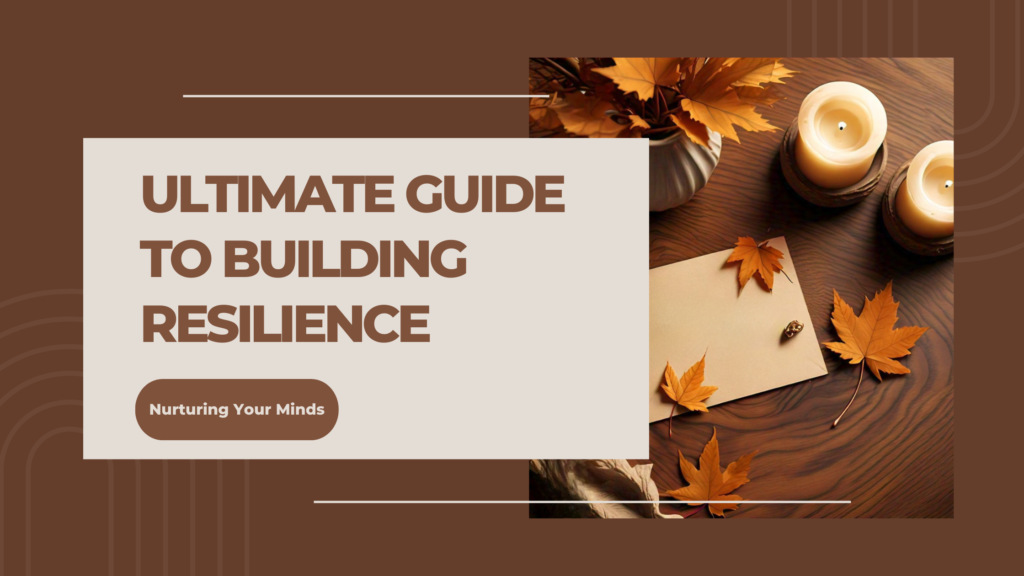Imagine standing at a crossroads, each path leading to a different future, how do you choose the right one? It all depends on your decision making ability; the choices you make today shape your tomorrow.
Introduction
In a world full of choices, making decisions can often feel overwhelming. Whether it’s a minor daily task or a life-altering decision, the process of making the right choice is an art that everyone must master. But what if I told you that decision making isn’t just about choosing the right option? It’s a psychological process deeply rooted in the way our minds are nurtured and developed. This article dives into the intricate psychology of decision making, exploring its importance, techniques, and the various types that influence our lives.
What is Decision Making? A Psychological Perspective
Decision making is the cognitive process of selecting a course of action from multiple alternatives. It involves identifying and evaluating options, considering potential outcomes, and making a choice that best aligns with one’s goals and values. From a psychological standpoint, decision making is influenced by various factors, including cognitive biases, emotional states, past experiences, and social pressures. Understanding these influences can help nurture your mind, enabling you to make more informed and balanced decisions.
The Importance of Decision Making: Why Every Choice Matters
The decisions we make have a profound impact on every aspect of our lives, from our careers to our relationships and personal well-being. Effective decision making is crucial because it allows individuals to:
Achieve Goals:
Decisions shape the direction of our lives, helping us achieve personal and professional objectives.
Build Confidence:
Making informed decisions boosts self-confidence and self-efficacy, reinforcing the belief in one’s ability to shape their destiny.
Foster Independence:
Decision-making is a key aspect of autonomy, allowing individuals to take control of their lives and make choices aligned with their values.
In a rapidly changing world, the ability to make sound decisions is more important than ever. Nurturing your mind to develop strong decision-making skills is essential for personal growth and success.
Techniques of Decision Making: Tools for Effective Choices
There are various techniques available to enhance the decision-making process, each designed to address different types of decisions. Some of the most effective techniques include:
1. SWOT Analysis:
A strategic planning tool that evaluates Strengths, Weaknesses, Opportunities, and Threats. This technique is especially useful for business decisions or major life changes.
2. Pros and Cons List:
A simple yet powerful tool for weighing the advantages and disadvantages of each option. This technique is ideal for everyday decisions.
3. Decision Matrix:
A quantitative method that scores different options based on various criteria, helping to identify the best choice.
4. Cost-Benefit Analysis:
A financial approach that compares the costs and benefits of each option, often used in business and economic decisions.
5. Heuristic Methods:
Mental shortcuts or rules of thumb that simplify decision-making. While these can be useful, they also carry the risk of cognitive biases.
By employing these techniques, you can nurture your mind to become more adept at analyzing situations and making informed decisions.
Types of Decision Making: Understanding the Variations
Decision making is not a one-size-fits-all process. Depending on the situation and context, different types of decision making processes may be more appropriate. Here are some of the most common types:
1. Rational Decision Making:
A logical, step-by-step approach that emphasizes objectivity and facts. This type is commonly used in business and academic settings.
2. Intuitive Decision Making:
Relying on gut feelings and instinct, this type is often used when quick decisions are needed or when there is a lack of information.
3. Collaborative Decision Making:
Involving multiple stakeholders, this type is common in team environments where consensus is important.
4. Decisive Decision Making:
Characterized by quick and firm choices, this type is often seen in leadership roles where time is of the essence.
5. Adaptive Decision Making:
Flexible and open to change, this type is essential in dynamic environments where circumstances frequently shift.
Understanding the different types of decision-making can help nurture your mind to choose the most appropriate approach for each situation, leading to better outcomes.
Making right decisions in life leads us towards contentment and happiness. When a decision turns out wrong, we can go in guilt and self-criticism, eventually leading towards stressful life ahead. And if you are already in such stress and want to kick start from zero, first you have to get rid of this stress and have your brain clear to make right decisions in life forward. For this, you may join our De-Stress Nurturing Program, in order to manage and cope with your stressors in a more effective and efficient manner.
Decision Making Process: A Step-by-Step Guide
The decision-making process can be broken down into a series of steps, each designed to help you arrive at the best possible choice. Here’s an overview of the seven-step decision making process, complete with examples to illustrate each stage:
1. Identify the Decision:
Recognize that a decision needs to be made.
Example: You’re considering whether to switch careers or stay in your current job.
2. Gather Information:
Collect relevant data and information to make an informed choice.
Example: Researching job opportunities, salary ranges, and industry growth in your field of interest.
3. Identify Alternatives:
List possible options or courses of action.
Example: Staying in your current job, switching to a new company, or pursuing further education.
4. Weigh the Evidence:
Evaluate the pros and cons of each alternative.
Example: Comparing job stability, growth potential, and personal satisfaction for each option.
5. Choose Among Alternatives:
Select the option that best meets your criteria.
Example: Deciding to pursue further education to enhance your career prospects.
6. Take Action:
Implement the decision and begin taking steps toward your choice.
Example: Enrolling in a degree program or certification course.
7. Review the Decision:
Reflect on the outcome and learn from the experience.
Example: Assessing your satisfaction and progress after completing your education.
By following these steps, you can nurture your mind to approach decision making in a structured and thoughtful manner, increasing the likelihood of positive outcomes.
For a more organized and efficient practice of decision making, you can check out this workbook on amazon, which will help you in better understanding and making right decisions through understanding your own thinking patterns and thought processes.
Nurturing the Minds: Cultivating Decision Making Skills
Nurturing the mind is essential for developing strong decision making skills. This involves fostering a growth mindset, enhancing emotional intelligence, and practicing mindfulness. Here’s how you can nurture your mind to improve decision-making:
1. Develop a Growth Mindset:
Embrace challenges and view failures as opportunities to learn and grow. This mindset encourages continuous improvement and better decision-making over time.
2. Enhance Emotional Intelligence:
Understand and manage your emotions, as well as the emotions of others. High emotional intelligence leads to more empathetic and balanced decisions.
3. Practice Mindfulness:
Stay present and focused, reducing the influence of stress and anxiety on your decisions. Mindfulness techniques, such as meditation, can help you approach decisions with clarity and calmness.
Organized Mindfulness Journals can also be used in order to practice mindfulness in a more easy and effective way.
4. Seek Feedback:
Regularly seek feedback from others to gain different perspectives and improve your decision making process.
By nurturing your mind in these ways, you can cultivate decision-making skills that are both effective and adaptive, enabling you to navigate life’s challenges with confidence.
Real-World Applications: Decision Making in Action
Decision-making is not confined to theory, it plays a crucial role in real-world scenarios. Here are a few examples of how decision-making skills can be applied in different areas of life:
- Career Choices: Whether choosing a new job, switching industries, or pursuing further education, decision-making is key to career success.
- Personal Relationships: From resolving conflicts to making long-term commitments, decision-making shapes the quality of our relationships.
- Financial Planning: Managing investments, budgeting, and financial planning all require sound decision-making to ensure long-term financial health.
- Health and Wellness: Making decisions about diet, exercise, and healthcare involves balancing short-term desires with long-term well-being.
These examples illustrate how decision-making is an integral part of everyday life, influencing everything from our personal happiness to our professional achievements.

Conclusion: The Power of Nurtured Minds in Decision Making
Decision-making is a complex yet vital skill that affects every aspect of our lives. By understanding the psychological factors that influence our choices and by nurturing our minds to develop strong decision-making skills, we can make better decisions that lead to positive outcomes. Whether you’re facing a major life decision or simply navigating the choices of daily life, the ability to make informed and balanced decisions is a powerful tool that can shape your future.
In the end, decision-making is not just about choosing the right path; it’s about nurturing your mind to make choices that align with your goals, values, and aspirations. So the next time you find yourself at a crossroads, remember: the power to choose wisely lies within you.



